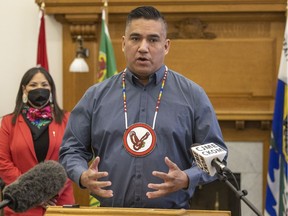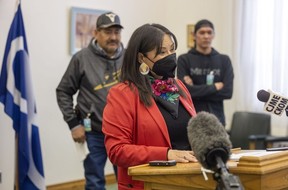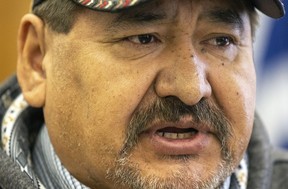
© Jonathan Migneault/CBC
Sudbury's Laurentian University announced it was insolvent in February 2021. In April that year, it cut 69 programs and fired more than 100 staff and faculty members.
Jonathan Migneault - cbc.ca
Yesterday
Laurentian University's capital expansions from 2010 to 2020, along with "poor management of its financial affairs," were big factors in the Sudbury school's insolvency last year, according to a preliminary report by Ontario's auditor general.
In her "Preliminary Perspective on Laurentian University," which was submitted to the Legislature on Wednesday, Bonnie Lysyk says Laurentian refused to seek financial assistance from the province and made a mistake when it opted to go through the Companies' Creditors Arrangement Act (CCAA) for restructuring.
"As of March 3, 2022, the university had incurred legal and other financial consultant fees associated with its insolvency of more than $24 million," the auditor general said in the document.
The Sudbury university announced it was insolvent in February 2021. On April 12 that year, it cut 69 programs, which affected an estimated 932 students. Laurentian also fired 195 staff and faculty members with little notice and severance.
Like all universities, Lysyk said, the COVID-19 pandemic affected Laurentian's finances, but its problems started long before, in 2010, when it went on a building spree to expand its Sudbury campus.
"There wasn't the revenue coming in to support the payment down of the principal and interest from those investments," Lysyk told CBC News.
She said there doesn't seem to be any intentional wrongdoing by Laurentian, and added its capital expansion plans were well meant. But she said the university's board of governors failed to provide proper oversight, and the Ministry of Colleges and Universities did not intervene in time when it was clear Laurentian was in financial straits.
From 2010 to 2020, Lysyk also found, Laurentian senior administration costs grew by 75 per cent, and in 2018 they peaked at more than $4 million annually.
Laurentian University's capital expansions from 2010 to 2020, along with "poor management of its financial affairs," were big factors in the Sudbury school's insolvency last year, according to a preliminary report by Ontario's auditor general.
In her "Preliminary Perspective on Laurentian University," which was submitted to the Legislature on Wednesday, Bonnie Lysyk says Laurentian refused to seek financial assistance from the province and made a mistake when it opted to go through the Companies' Creditors Arrangement Act (CCAA) for restructuring.
"As of March 3, 2022, the university had incurred legal and other financial consultant fees associated with its insolvency of more than $24 million," the auditor general said in the document.
The Sudbury university announced it was insolvent in February 2021. On April 12 that year, it cut 69 programs, which affected an estimated 932 students. Laurentian also fired 195 staff and faculty members with little notice and severance.
Like all universities, Lysyk said, the COVID-19 pandemic affected Laurentian's finances, but its problems started long before, in 2010, when it went on a building spree to expand its Sudbury campus.
"There wasn't the revenue coming in to support the payment down of the principal and interest from those investments," Lysyk told CBC News.
She said there doesn't seem to be any intentional wrongdoing by Laurentian, and added its capital expansion plans were well meant. But she said the university's board of governors failed to provide proper oversight, and the Ministry of Colleges and Universities did not intervene in time when it was clear Laurentian was in financial straits.
From 2010 to 2020, Lysyk also found, Laurentian senior administration costs grew by 75 per cent, and in 2018 they peaked at more than $4 million annually.
Laurentian's CCAA move a mistake: AG
In her preliminary perspective, she said the size of Laurentian's senior administration had been consistently larger than at other Ontario universities around the same size. As well, some senior administrators' salaries exceeded limits set by legislation meant to put a ceiling on public-sector pay.
Lysyk said Laurentian's solution to its financial problems, restructuring under the CCAA, was a mistake.
The CCAA was created as a tool for insolvent private companies to restructure, but it had never been applied to a public university like Laurentian.
"In this particular case, we do believe that Laurentian needed to pull together a stronger ask of the ministry and work with the Ministry of Colleges and Universities to pull together a plan, even a year ahead of time, to support them in their endeavours going forward," Lysyk said.
She noted that nearby Nipissing University, which is in North Bay, ran into financial difficulties in 2014. But Nipissing worked with the Ministry of Colleges and Universities early on to seek funding and improve its position.
Influence from outside parties
In her preliminary perspective, Lysyk said she believes Laurentian was influenced by external parties to use the CCAA, up to a year before it announced it was insolvent.
"In August 2020, Laurentian raised the potential of CCAA to the Minister of Colleges and Universities but did not clearly define how much financial assistance was required from the province to avoid a CCAA filing," the document said.
"An explicit request for funding to the Ministry was not made until December 2020, at which point the ask was significant and the timeline for intervention was short."
Katlyn Kotila, a Laurentian political science student, said the preliminary report was not surprising to her, and has echoed concerns students, staff and faculty have had since the university announced it was insolvent.
"I love the community that Laurentian has provided me with," Kotila said.
"But I'm also so angry. And this process has made me incredibly angry because I'm watching as a university I love and a community that I love has basically been burnt to flames."
Kotila said it was telling that Nipissing University was able to climb out of a bad financial situation by working closely with the Ministry of Colleges and Universities.
"It's really sad to see that Laurentian had that opportunity to do so and they chose not to."
Professors react
Albrecht Schulte-Hostedde, a professor at Laurentian's School of Natural Sciences, said the auditor general's preliminary findings showed consultants influenced the university's leaders to file for insolvency and go through the CCAA process.
"It wasn't lost on me that yesterday [Tuesday] we celebrated, in a way, the one-year anniversary of the terminations of over 100 faculty," Schulte-Hostedde said.
"And today we learned in this report that it was all unnecessary, that the university's administration had made a conscious choice to go down this route."
Schulte-Hostedde said the university is now "a shadow of what it once was," but added he is optimistic now that many of the university's former board members have resigned.
He said Jeff Bangs, Laurentian's interim board chair, has "said all the right things" so far.
Fabrice Colin, president of the Laurentian University Faculty Association, said the preliminary report validated things his association has argued for 14 months.
The key point, he said, was the CCAA process was not the appropriate cure for Laurentian's financial problems — something the faculty association said all along.
Colin said Laurentian's leadership will need to be more transparent with faculty members to move forward and rebuild.
"We definitely saw a change in the tone and approach since the arrival of the new board members and the new president of the board," he said.
"It seems now there is a commitment towards more transparency and toward more collaborations, so it's encouraging."
Laurentian responds to AG findings
In a written statement, Laurentian said it would carefully examine the auditor general's findings.
The university said it has implemented a number of reforms and initiatives in recent months to ensure its financial sustainability.
It noted the province provided recent financial support when it refinanced a $35 million debtor-in-possession loan.
The statement said it is renewing its board of governors, and has completed a review of its operations and governance.
"We know that our successful recovery will come from essential changes within the institution," the emailed statement said.
"Laurentian is absolutely committed to seeing this transformation to completion — and will do what is necessary to acquire the skills, operational efficiencies, transparency and accountability that is required and expected from Laurentian."
Call for resignations
In a written statement, the Canadian Association of University Teachers (CAUT) called for Laurentian president Robert Haché and all senior administrators to resign, following the auditor general's preliminary report.
"It is absolutely scandalous that the university leadership used money intended for employee health benefits and academic research for its capital projects and other purposes," CAUT executive director David Robinson said in the statement.
"It then diverted more than $24 million to high-priced consultants and lawyers handling the unnecessary insolvency proceedings, while at the same time demanding staff layoffs and program cuts."
Robinson said Haché and other senior leaders need to step down for Laurentian to regain the public's trust.









